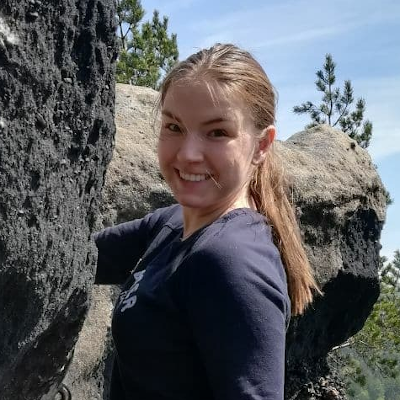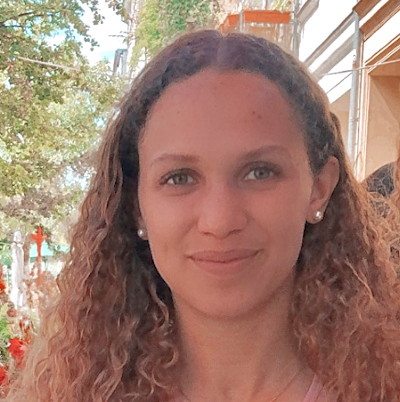
People
Alumni

|
Hannah Menghis |
Humboldt Internship Student (Brown University) 2023-08/2023-10 |
Hannah will establish a pharmacokinetic dataset of semaglutide and develop an initial version of a physiologically based pharmacokinetic (PBPK) model of the GLP-1 inhibitor semaglutide. The objective is to enhance our understanding of the underlying causes of intraindividual variability in semaglutide treatment, e.g., differences in renal function. | |

|
Hülya Karaboğa |
ERASMUS 2023-10/2023-12 |
Huelya will develop a physiologically based pharmacokinetic (PBPK) model of the ACE inhibitor captopril. | |

|
Frances Okibedi |
Internship 2023-03/2023-12 |
Frances works a physiologically based pharmacokinetic (PBPK) model of sorafenib for systemic treatment of hepatocellular carcinoma (HCC). Key questions are to study the effect of OATP activity and CYP3A4 inhibition on sorafenib pharmacokinetics and efficiency. | |

|
Sankha Das |
Research Internship 2022-11/2023-05 |
Sankha works on the analysis and quantification of microcirculation data recorded in Humans and Rats. Within the project a workflow for the analysis of orthogonal polarization spectroscopy (OPS) and IDF will be developed as part of QuaLiPerF. | |
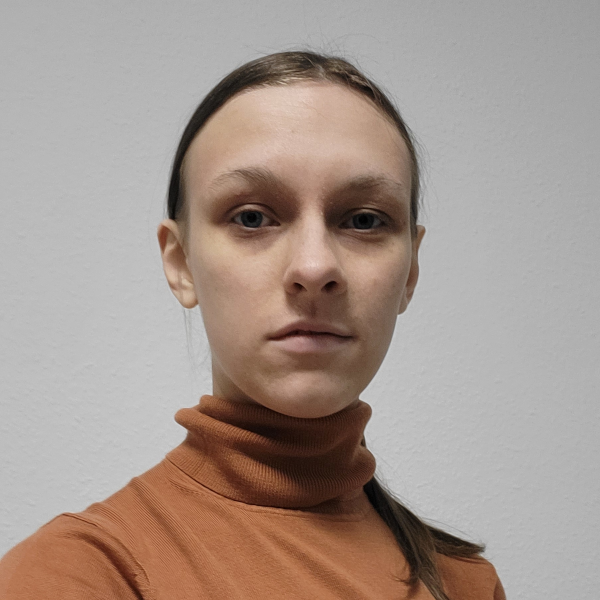
|
Xenia Petukhova |
Humboldt Internship Student 2023-07/2023-09 |
Xenia works on a physiologically based pharmacokinetic (PBPK) model of inulin to assess the glomerular filtration rate (GFR). Our goal is to gain a deeper understanding of the impact of various inulin protocols on GFR measurement and the influence of physiological factors, such as body composition, on GFR determination using inulin. | |

|
Zahra Bahri |
Humboldt Internship Student 2023-07/2023-09 |
Zhara works on a physiologically based pharmacokinetic (PBPK) model to estimate the glomerular filtration rate (eGFR) using creatinine. The objective is to enhance our understanding of how variations in creatinine production, muscle mass, and tubular secretion of creatinine influence eGFR calculations. | |

|
Florian Bartsch |
Bachelor student, Master project, student assistant, Master project 2020- |
Florian works on a physiologically based model of statin clearance. Key questions are the effect of statins (atorvastatin and simvastatin) on cholesterol plasma levels and drug-drug interactions. | |

|
Adrian Köller |
Bachelor student, Master project, student assistant 2020-2023 |
Adrian worked on a physiologically based model of indocyanine green (ICG) clearance. Key questions are the effect of blood flow and plasma proteins on ICG clearance and related liver function tests. Currently, Adrian analyzes the changes in OGTT during impaired glucose tolerance and diabetes type 2. | |

|
Nurudeen Sojimade |
Internship 2023-03/2023-05 |
Nurudeen works a physiologically based pharmacokinetic (PBPK) model of the contrast agent Gd-EOB-DTPA. Key questions are to study the effect of hepato-renal impairment, perfusion and OATP activity on Gd-EOB-DTPA pharmacokinetics. | |

|
Jan Grzegorzewski |
Ph.D. student 2017-2023 |
Jan worked on the stratification and personalization of computational models. He develops methods and software for semi-automatic data curation of pharmacokinetic information and a pharmacokinetic database for storage and the storage and FAIR access of such data (PK-DB). | |

|
Sophie Silberhorn |
Internship 2023-05/2023-06 |
Sophie worked on a systematic overview of the protein variability of ABC and SLC transporters in the human liver. | |

|
Paula Ogata |
Humboldt Internship Student 2020-2022 |
Paula works on a pharmacokinetics/pharmacodynamics model of metoprolol. Key questions are the effect of dosing and formulation on metoprolol pharmacokinetics and exercise heart rate (EHR) reduction. | |

|
Deepa Maheshvare |
Ph.D. student (internship) 2019-2023 |
Deepa works on a kinetic model of glucose stimulated insulin secretion (GSIS) of the pancreatic beta-cell. Key questions are the changes in glycolysis during insulin secretion. | |

|
Janosch Brandhorst |
Student assistant 2019-2022 |
Janosch works on the computational modeling of acetaminophen through the liver and curates data for the pharmacokinetics database PK-DB. | |
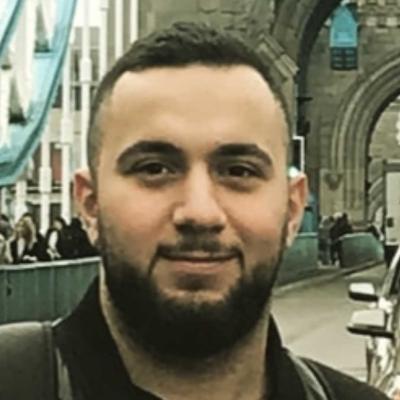
|
Sükrü Balci |
Bachelor student 2020-2021 |
Sükrü Balci works on a physiological based model of omeprazole. Key questions are the effect of omeprazole formulation and dosing on the pharmacodynamic effects of omeprazole. | |

|
Sankha Das |
Google summer of code student (2021) 2021 |
In cooperation with Ralf Steuer from the Humboldt-University Berlin we are implementing an SBML report for Humans in sbmlutils. The full proposal is available here. | |

|
Yannick Duport |
Bachelor student 2019-2021 |
Yannick Duport works on a physiological based model of midazolam clearance. Key questions are the effect of inhibitors and inducers on the metabolism of midazolam. | |

|
Danny Ke |
Humboldt Internship Student 2020 2020-2021 |
Danny Ke works on a physiological based model of benzodiazepines. Key questions are the effect of genetic variance on clearance of diazepam. | |

|
Sara de Angelis |
Humboldt Internship Student 2020 2020 |
Sara de Angelis works on a physiological based model of torasemide. Key questions are the effect of sex on torasemide pharmacokinetics and pharmacodynamics. | |

|
Hemant Yadav |
Google summer of code student (2020) 2020 |
In cooperation with Andreas Dräger from the University of Tübingen we are extending SBML and JSON support for cobrapy. The full proposal is available here. | |

|
Hemil Panchiwala |
Google summer of code student (2020) 2020 |
In cooperation with Andreas Dräger from the University of Tübingen we are extending SBML support for The Systems Biology Simulation Core Library. The full proposal is available here. | |

|
Kaustubh Trivedi |
Google summer of code student (2019) 2019 |
In cooperation with Andreas Dräger from the University of Tübingen we are working on the extension of ModelPolisher to a universal annotation tool. | |

|
Patrick Pett |
Ph.D. student (mentoring) 2017-2019 |
Patrick works on the analysis of mammalian circadian clock in the human liver based on the analysis of OMICS datasets. | |

|
Roman Schulte |
Bachelor thesis 2018 |
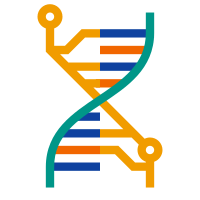 Within his thesis the concept of an Modular Research Environment (MRE) was developed. An MRE is a modular application framework that can be extended with plugins to create a new tool. InSilico is the working proof-of-principle implementation of such an MRE and was developed alongside this work. The created infrastructure of InSilico can be used to create, share and reuse custom research tools with less effort, time, and resources compared to the traditional approach. Within his thesis the concept of an Modular Research Environment (MRE) was developed. An MRE is a modular application framework that can be extended with plugins to create a new tool. InSilico is the working proof-of-principle implementation of such an MRE and was developed alongside this work. The created infrastructure of InSilico can be used to create, share and reuse custom research tools with less effort, time, and resources compared to the traditional approach. |
|

|
Shalin Shah |
Google Summer of Code 2018 2018 |
 The Systems Biology Simulation Core Library (SBSCL) provides an efficient and exhaustive Java™ implementation of methods to interpret the content of models encoded in the Systems Biology Markup Language (SBML) and its numerical solution. This library is based on the JSBML project and can be used on every operating system for which a Java Virtual Machine is available. Within this project SBSCL was extended among others with better support for SED-ML and COMBINE archives. See also https://ssdoesgsoc.wordpress.com/. The Systems Biology Simulation Core Library (SBSCL) provides an efficient and exhaustive Java™ implementation of methods to interpret the content of models encoded in the Systems Biology Markup Language (SBML) and its numerical solution. This library is based on the JSBML project and can be used on every operating system for which a Java Virtual Machine is available. Within this project SBSCL was extended among others with better support for SED-ML and COMBINE archives. See also https://ssdoesgsoc.wordpress.com/. |
|

|
Takahiro Yamada |
Google Summer of Code 2017 2017 |
 Within this project as part of Google Summer of Code 2017 a Web App for SBML models was implemented which provides functionality for time course simulation, steady state analysis, and parameter estimation. The Web App provides options for uploading SBML models and experimental data files and run the respective simulations with the models. See also https://gsoc2017developwebservice.blogspot.com/. Within this project as part of Google Summer of Code 2017 a Web App for SBML models was implemented which provides functionality for time course simulation, steady state analysis, and parameter estimation. The Web App provides options for uploading SBML models and experimental data files and run the respective simulations with the models. See also https://gsoc2017developwebservice.blogspot.com/. |
|

|
Dimitra Eleftheriadou |
Student assistant 2016-2017 |
Dimitra (Master Toxicology) worked on the analysis and digitalization of literature data for liver function tests. |



